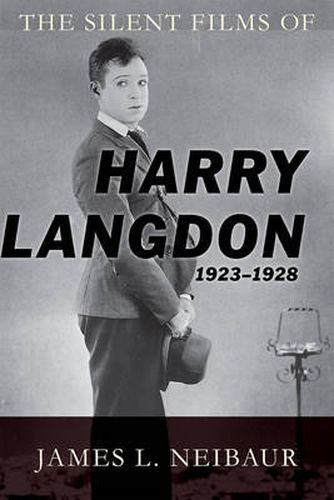Readings Newsletter
Become a Readings Member to make your shopping experience even easier.
Sign in or sign up for free!
You’re not far away from qualifying for FREE standard shipping within Australia
You’ve qualified for FREE standard shipping within Australia
The cart is loading…






Harry Langdon was a silent screen comedian unlike any other. Slower in pace, more studied in movement, and quirkier in nature, Langdon challenged the comic norm by offering comedies that were frequently edgy and often surreal. After a successful run of short comedies with Mack Sennett, Langdon became his own producer at First National Pictures, making such features as Tramp Tramp Tramp, The Strong Man, and Long Pants before becoming his own director for Three’s a Crowd, The Chaser, and Heart Trouble.
In The Silent Films of Harry Langdon (1923-1928), film historian James Neibaur examines Langdon’s strange, fascinating work during the silent era, when he made landmark films that were often ahead of their time. Extensively reviewing the comedian’s silent screen work film by film, Neibaur makes the case that Langdon should be accorded the same lofty status as his contemporaries: Charlie Chaplin and Buster Keaton. With fascinating insights into the work of an under-appreciated artist, this book will be of interest to both fans and scholars of silent cinema.
$9.00 standard shipping within Australia
FREE standard shipping within Australia for orders over $100.00
Express & International shipping calculated at checkout
Harry Langdon was a silent screen comedian unlike any other. Slower in pace, more studied in movement, and quirkier in nature, Langdon challenged the comic norm by offering comedies that were frequently edgy and often surreal. After a successful run of short comedies with Mack Sennett, Langdon became his own producer at First National Pictures, making such features as Tramp Tramp Tramp, The Strong Man, and Long Pants before becoming his own director for Three’s a Crowd, The Chaser, and Heart Trouble.
In The Silent Films of Harry Langdon (1923-1928), film historian James Neibaur examines Langdon’s strange, fascinating work during the silent era, when he made landmark films that were often ahead of their time. Extensively reviewing the comedian’s silent screen work film by film, Neibaur makes the case that Langdon should be accorded the same lofty status as his contemporaries: Charlie Chaplin and Buster Keaton. With fascinating insights into the work of an under-appreciated artist, this book will be of interest to both fans and scholars of silent cinema.